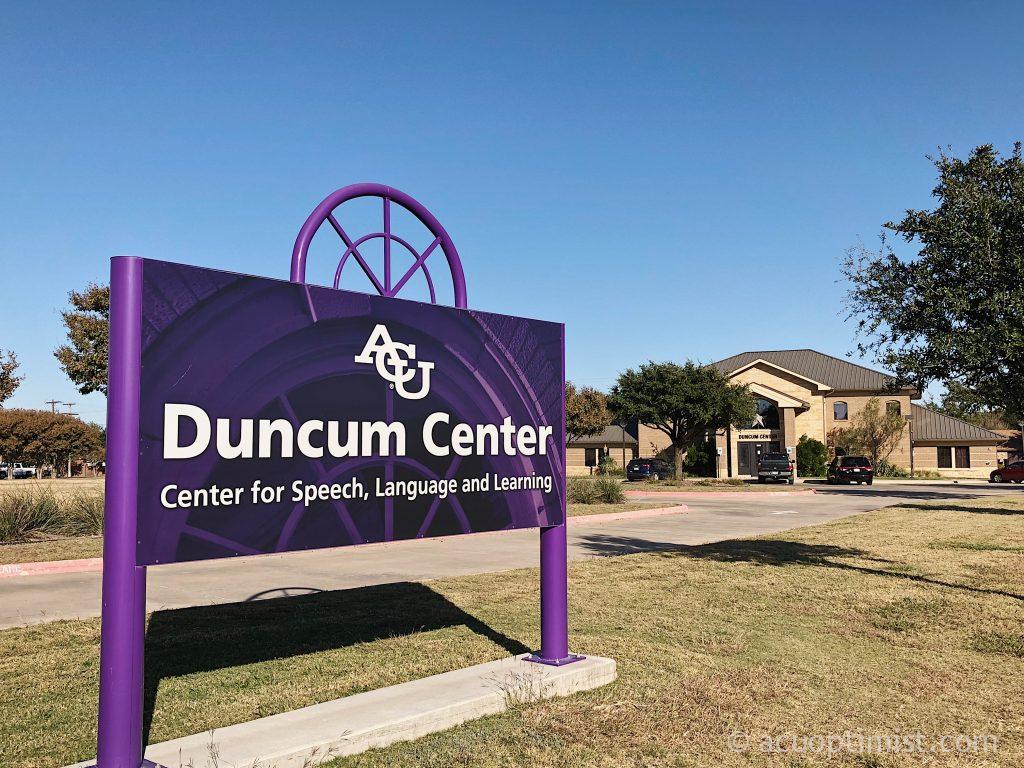As COVID-19 causes all areas of ACU to create new regulation and safety guidelines, the Duncum Center has changed the way that ACU students engage with their program.
For years now the Duncum Center has worked adjacent to ACU’s department of communications and science disorder to help serve the Abilene community. At the clinic, students are able to gain hands-on experience in a professional setting, by working with patients at the clinic.
“In Abilene, in our newly remodeled clinic, the Duncum Center,” said Lynette Austin, CSD department chair. “we’re able to involve students in the treatment of different communication disorders in face-to-face or teletherapy interactions, while they study.”
According to the department, teletherapy has been fully utilized in the past months. As coronavirus causes face-to-face contact to be harmful to all parties involved, having the option to continue online was essential in the continued success of the program. However, this was not the only shift that happened due to coronavirus.
According to Abbey Hale, a senior communication disorders major from Hamilton and a student worker at the Duncum Center, the daily tasks she oversees has reflected on the difference from her experience at the center before coronavirus.
“Last semester my job was to stock supplies, run errands and help anyone who needed me,” Hale said. “Now, my primary responsibility is answering calls when clients arrive at the clinic and then meeting them at the door for a COVID screening. I also am responsible for making sure each room has their supplies, such as disinfectant spray.”
Hale also said that the increased regulations that prevent parents and spouses from staying in the clinic have lead to a decreased light-hearted environment in the Duncum Center.
As the year comes to an uncertain end, many at the Duncum Center look forward to a time when the waiting room is no longer silent.

